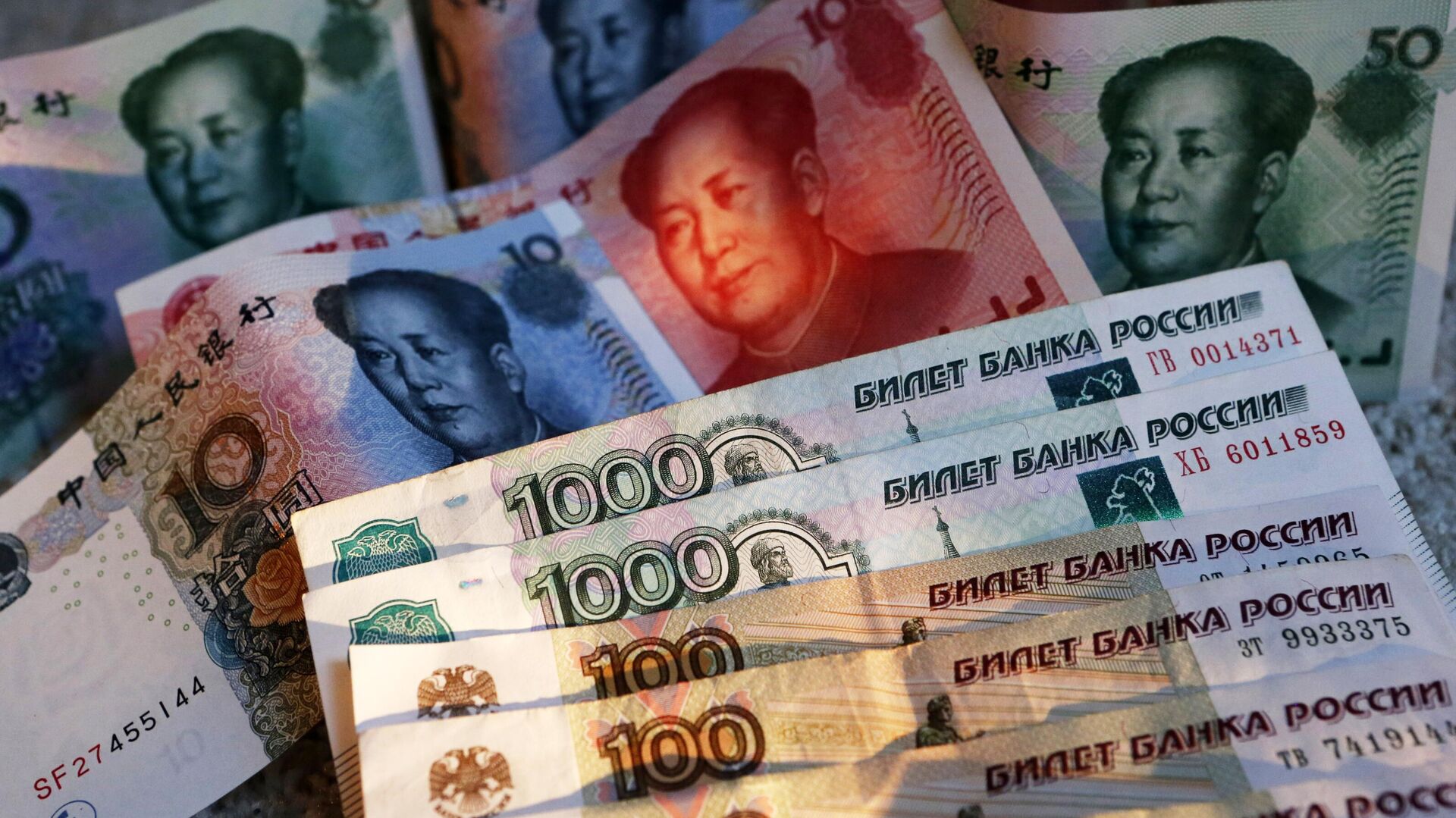https://en.sputniknews.africa/20240730/brics-challenges-traditional-paradigms-of-trade-economics-russias-foreign-ministry-says-1067680253.html
BRICS Challenges Traditional Paradigms of Trade Economics, Russia's Foreign Ministry Says
BRICS Challenges Traditional Paradigms of Trade Economics, Russia's Foreign Ministry Says
Sputnik Africa
By the end of 2023, the share of BRICS in global output had increased by 0.6 percentage points year-on-year. Since the creation of the bloc in 2006, its share... 30.07.2024, Sputnik Africa
2024-07-30T16:09+0200
2024-07-30T16:09+0200
2024-09-08T13:09+0200
brics
g7
russia
north
global south
gdp
economy
trade
currency
https://cdn1.img.sputniknews.africa/img/07e8/04/11/1066109533_0:129:3186:1921_1920x0_80_0_0_7683d1236b1955f0d3ccc113be68e417.jpg
BRICS intra-South trade surpasses the volume of trade between the global South and the global North, defying the widely held belief that developing countries mainly trade with Western nations, according to Deputy Foreign Minister of Russia Alexander Pankin.This represents a remarkable proportion, which would have been inconceivable 30 to 40 years ago, he added.Earlier in June, South Africa's sous-Sherpa to BRICS, Ben Joubert, told Sputnik Africa that conducting trade in national currencies marks "a very important step towards gaining critical mass in the field of intra-BRICS trade." This approach also results in significant savings on transaction costs, which is crucial for BRICS members, as they are emerging and developing nations that cannot afford to "have money to spend on non-core business."
https://en.sputniknews.africa/20240703/brics-share-of-global-gdp-hits-record-357-in-2023-1067354701.html
russia
north
Sputnik Africa
feedback@sputniknews.com
+74956456601
MIA „Rossiya Segodnya“
2024
Christina Glazkova
https://cdn1.img.sputniknews.africa/img/07e7/0b/07/1063380906_0:0:673:674_100x100_80_0_0_79628b4d0cd9f29291a57aa13bbf9e7a.jpg
Christina Glazkova
https://cdn1.img.sputniknews.africa/img/07e7/0b/07/1063380906_0:0:673:674_100x100_80_0_0_79628b4d0cd9f29291a57aa13bbf9e7a.jpg
News
en_EN
Sputnik Africa
feedback@sputniknews.com
+74956456601
MIA „Rossiya Segodnya“
Sputnik Africa
feedback@sputniknews.com
+74956456601
MIA „Rossiya Segodnya“
Christina Glazkova
https://cdn1.img.sputniknews.africa/img/07e7/0b/07/1063380906_0:0:673:674_100x100_80_0_0_79628b4d0cd9f29291a57aa13bbf9e7a.jpg
brics, g7, russia, north, global south, gdp, economy, trade, currency
brics, g7, russia, north, global south, gdp, economy, trade, currency
BRICS Challenges Traditional Paradigms of Trade Economics, Russia's Foreign Ministry Says
16:09 30.07.2024 (Updated: 13:09 08.09.2024) Christina Glazkova
Writer / Editor
By the end of 2023, the share of BRICS in global output had increased by 0.6 percentage points year-on-year. Since the creation of the bloc in 2006, its share in the global economy has increased by 10.2 percentage points, according to Sputnik calculations based on World Bank data.
BRICS intra-South trade surpasses the volume of trade between the global South and the global North, defying the widely held belief that developing countries mainly trade with
Western nations, according to Deputy Foreign Minister of Russia Alexander Pankin.
"Few people promote these figures, although we try to publicize them. As of now, BRICS countries account for 35% of the world's GDP, whereas the G7 countries account for 30%," he said, speaking at a round table in the Federation Council.
This represents a remarkable proportion, which would have been inconceivable 30 to 40 years ago, he added.
"Therefore, we have adopted a strategy for global diversification of international cooperation with all regions of the South, including Asia, Africa, and Latin America. [...] This includes building logistical chains, production chains, household chains, and transportation chains that would be minimally influenced by Western countries, institutions, and their agents," Pankin pointed out.
Earlier in June, South Africa's sous-Sherpa to BRICS, Ben Joubert,
told Sputnik Africa that conducting trade in national currencies marks "a very important step towards gaining critical mass in the field of intra-BRICS trade." This approach also results in significant savings on transaction costs, which is crucial for BRICS members, as they are emerging and developing nations that cannot afford to "have money to spend on non-core business."



